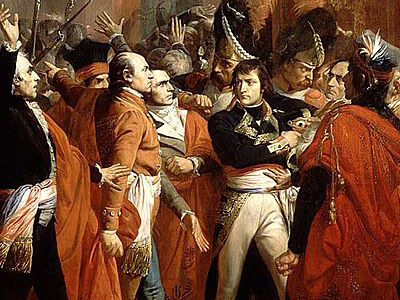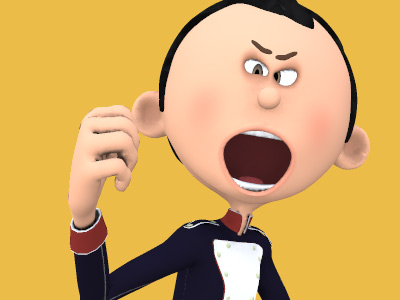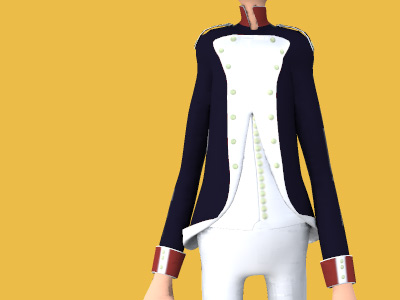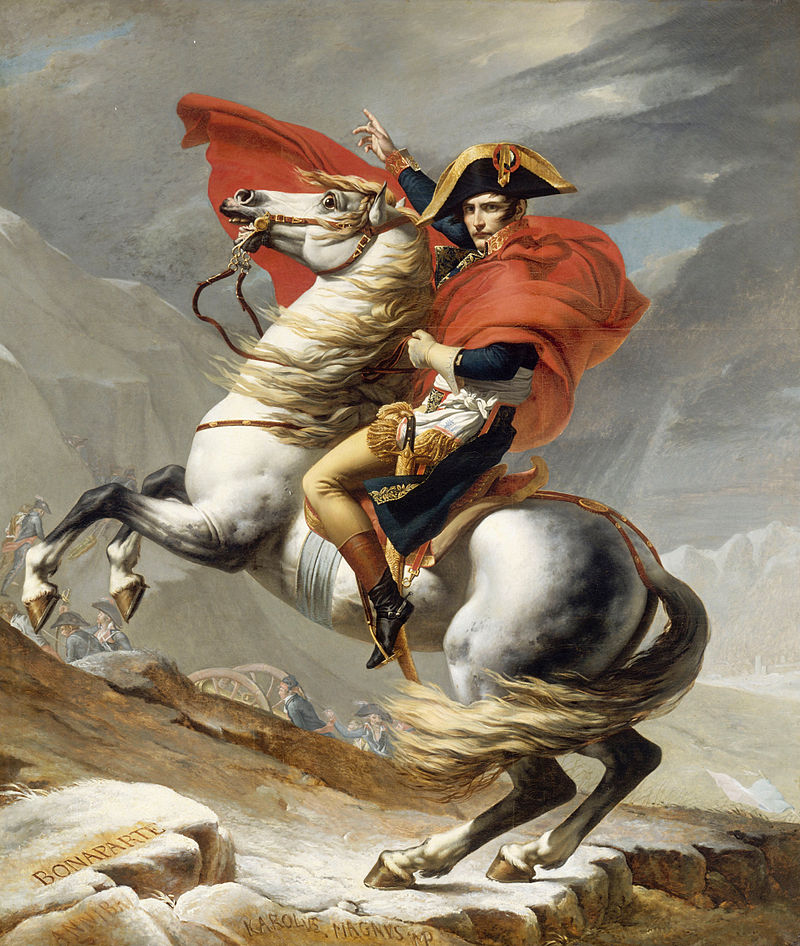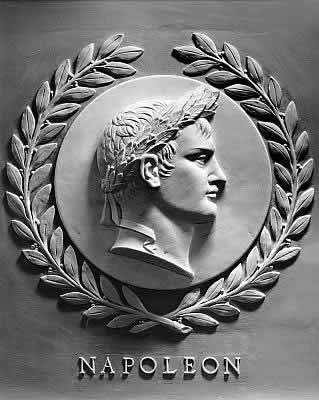Napoleon Bonaparte (1769-1821)
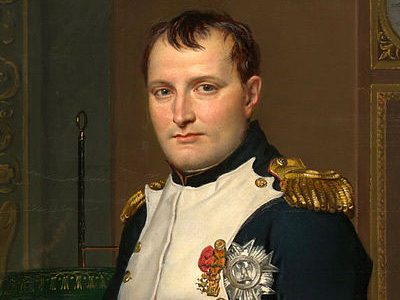
Origins and education
Napoleon was born on 15 August 1769, to Carlo Maria di Buonaparte and Maria Letizia Ramolino, in his family's ancestral home Casa Buonaparte in Ajaccio, the capital of the island of Corsica. He was their fourth child and third son. This was a year after the island was transferred to France by the Republic of Genoa. He was christened Napoleone di Buonaparte, probably named after an uncle (an older brother who did not survive infancy was the first of the sons to be called Napoleone). In his 20s, he adopted the more French-sounding Napoléon Bonaparte.
The Corsican Buonapartes were descended from minor Italian nobility of Tuscan origin, who had come to Corsica from Liguria in the 16th century.
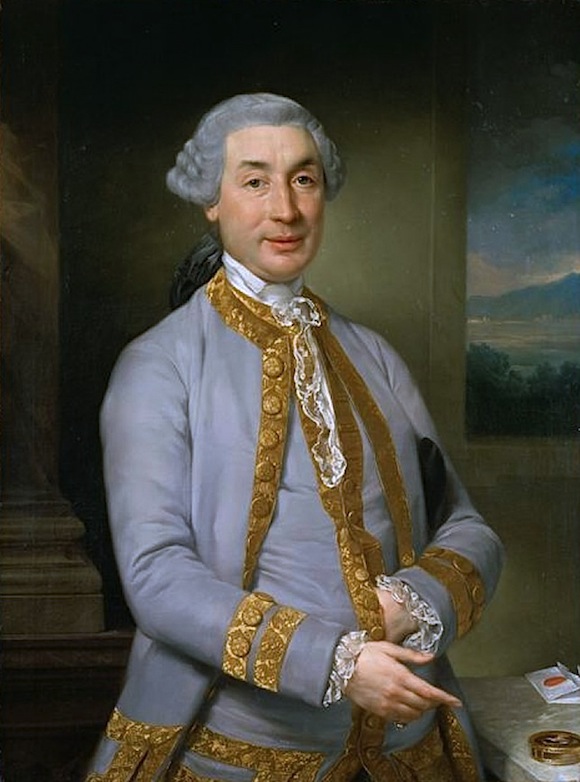
Napoleon's father Carlo Buonaparte was Corsica's representative to the court of Louis XVI of France
His father Nobile Carlo Buonaparte was an attorney, and was named Corsica's representative to the court of Louis XVI in 1777. The dominant influence of Napoleon's childhood was his mother, Letizia Ramolino, whose firm discipline restrained a rambunctious child. Napoleon's maternal grandmother had married into the Swiss Fesch family in her second marriage, and Napoleon's uncle, the cardinal Joseph Fesch, would fulfill a role as protector of the Bonaparte family for some years.
He had an elder brother, Joseph, and younger siblings: Lucien, Elisa, Louis, Pauline, Caroline, and Jérôme. A boy and girl were born before Joseph but died in infancy. Napoleon Napoleon Bonaparte (1769-1821), was a French military and political leader who rose to prominence during the French Revolution and led several successful campaigns during the French Revolutionary Wars. As Napoleon I, he was Emperor of the French from 1804 until 1814, and again in 1815. One of the greatest commanders in history, his wars and campaigns are studied at military schools worldwide. Napoleon Bonaparte » was baptised as a Catholic.
Napoleon Bonaparte (1769-1821), was a French military and political leader who rose to prominence during the French Revolution and led several successful campaigns during the French Revolutionary Wars. As Napoleon I, he was Emperor of the French from 1804 until 1814, and again in 1815. One of the greatest commanders in history, his wars and campaigns are studied at military schools worldwide. Napoleon Bonaparte » was baptised as a Catholic.
Napoleon's noble, moderately affluent background afforded him greater opportunities to study than were available to a typical Corsican of the time. In January 1779, he was enrolled at a religious school in Autun. In May, he was admitted to a military academy at Brienne-le-Château. His first language was Corsican, and he always spoke French with a marked Corsican accent and never learned to spell French properly. He was teased by other students for his accent and applied himself to reading. An examiner observed that Napoleon "has always been distinguished for his application in mathematics. He is fairly well acquainted with history and geography... This boy would make an excellent sailor."
On completion of his studies at Brienne in 1784, Napoleon was admitted to the elite École Militaire in Paris. He trained to become an artillery officer and, when his father's death reduced his income, was forced to complete the two-year course in one year. He was the first Corsican to graduate from the École Militaire. He was examined by the famed scientist Pierre-Simon Laplace.
HISTORY
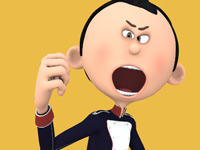
RESOURCES
This article uses material from the Wikipedia article "Napoleon", which is released under the Creative Commons Attribution-Share-Alike License 3.0.
© Stories Preschool. All Rights Reserved.
